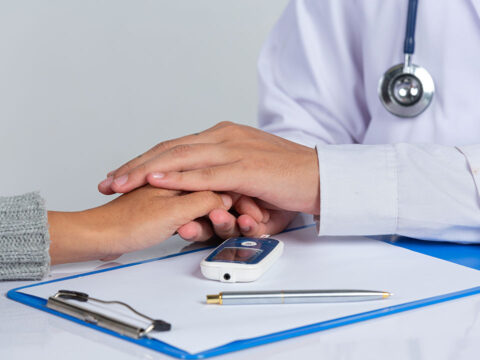
Diabetes And Thyroid Disease: Is There A Connection
March 14, 2022
Effects of Summer on Diabetes
March 14, 2022Piles, also known as haemorrhoids, is a disease characterised by swollen or inflamed veins around the anus or in the lower rectum. There are two types of haemorrhoids: external haemorrhoids and internal haemorrhoids. External haemorrhoids are formed under the skin around the anus, whereas internal haemorrhoids are formed in the lining of the anus and lower rectum. There are many medicines and treatment options to cure piles. However, not all of them can be used by people with diabetes.
How Are Piles And Diabetes Linked?
There is no direct connection between piles and diabetes. Some medicines used in the treatment of piles are known to adversely affect the blood glucose levels of the body and cause physical problems for people who take diabetes medications. Therefore, people with diabetes are advised to understand the treatment options for piles that can work for them.
However, before diving deep into the treatment of piles with diabetes, let’s know a few things more about piles.
Symptoms Of Piles

Some of the common symptoms of external haemorrhoids include anal itching, one or more hard lumps near the anus and pain in and around the anus, especially while sitting.
People with internal haemorrhoids may experience symptoms such as bleeding from the rectum and falling off of a haemorrhoid from the anal opening (known as prolapse).
Causes Of Piles
One of the leading causes of piles is poor toilet habits, such as straining during bowel movement, sitting on the toilet for a long duration, etc.
Other causes of piles include chronic constipation, diarrhoea, lack of fibre in the diet, pregnancy and weakening of the tissues in the anus and rectum.
How To Diagnose Piles?
Doctors often diagnose piles through a physical exam. They check the area around your anus, conduct a digital rectal exam and sometimes use procedures to look inside your anus or rectum. Your medical history also plays an important role in the diagnosis of haemorrhoids.
How To Treat Piles In People With Diabetes?

Diabetes patients who take medications to regulate their blood glucose levels cannot take many medicines usually prescribed for piles. Therefore, doctors usually recommend them to treat haemorrhoids at home by changing their diet and toilet habits. Mild medicines to relieve pain, swelling and itching may also be prescribed.
Some of the treatment guidelines usually given by doctors to diabetes patients are:
- Eat a good quantity of fibre-rich foods such as bran, fresh fruit and vegetables. It will help regulate bowel movement and cure piles.
- Avoid straining during bowel movements or sitting on the toilet for a prolonged duration.
- Use ice-compress to relieve swelling around the anus.
- Sit in warm water for 15 minutes once or twice a day to ease the symptoms of piles. You can also add Epsom salt to the water to further reduce inflammation. Sitz bath may also be beneficial for piles.
- Avoid eating foods and drinks that may cause constipation and increase the discomfort from haemorrhoids.
- Do not use over-the-counter products that contain vasoconstrictors or steroids that can cause blood sugar levels to rise. Always consult your doctor before taking any medicines.
On a Final Note
Piles are a painful situation, usually caused due to constipation, poor toilet habits and a lack of fibre-rich food in the diet. Piles and diabetes are also related to each other as medications used in piles treatment may adversely affect the blood sugar levels and hinder diabetes management. Therefore, doctors generally prefer a dietary and lifestyle approach to treat people with both diabetes and piles.
References
- https://www.frontiersin.org/articles/10.3389/fphar.2020.578831/full
- https://www.niddk.nih.gov/health-information/digestive-diseases/hemorrhoids/treatment
- https://www.emedicinehealth.com/hemorrhoid_treatment_for_people_with_diabetes/article_em.htm#what_are_other_hemorrhoid_treatment_options_for_people_with_diabetes
- https://www.niddk.nih.gov/health-information/digestive-diseases/hemorrhoids
- https://www.medicinenet.com/what_is_hemorrhoid_treatment_diabetics/ask.htm




